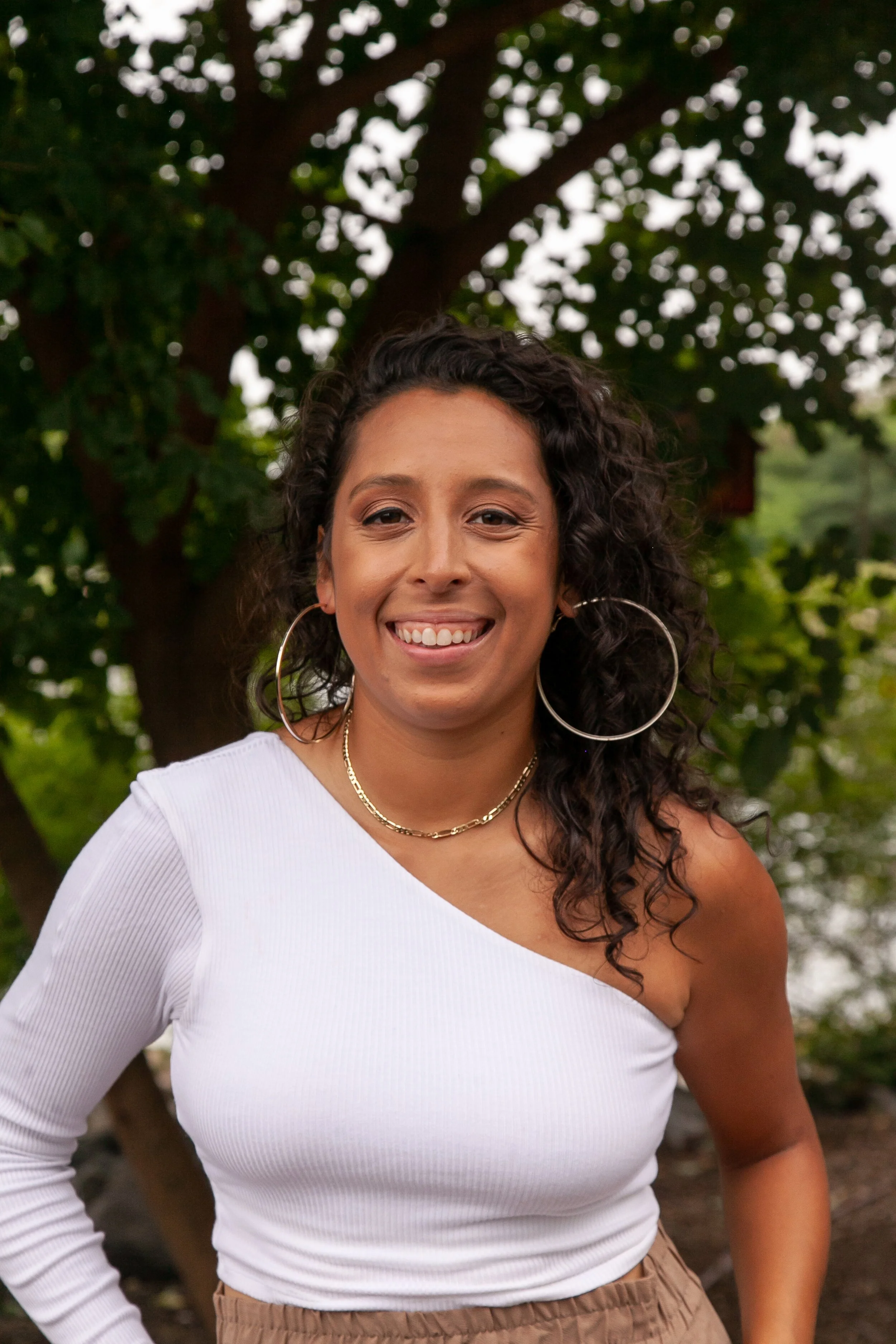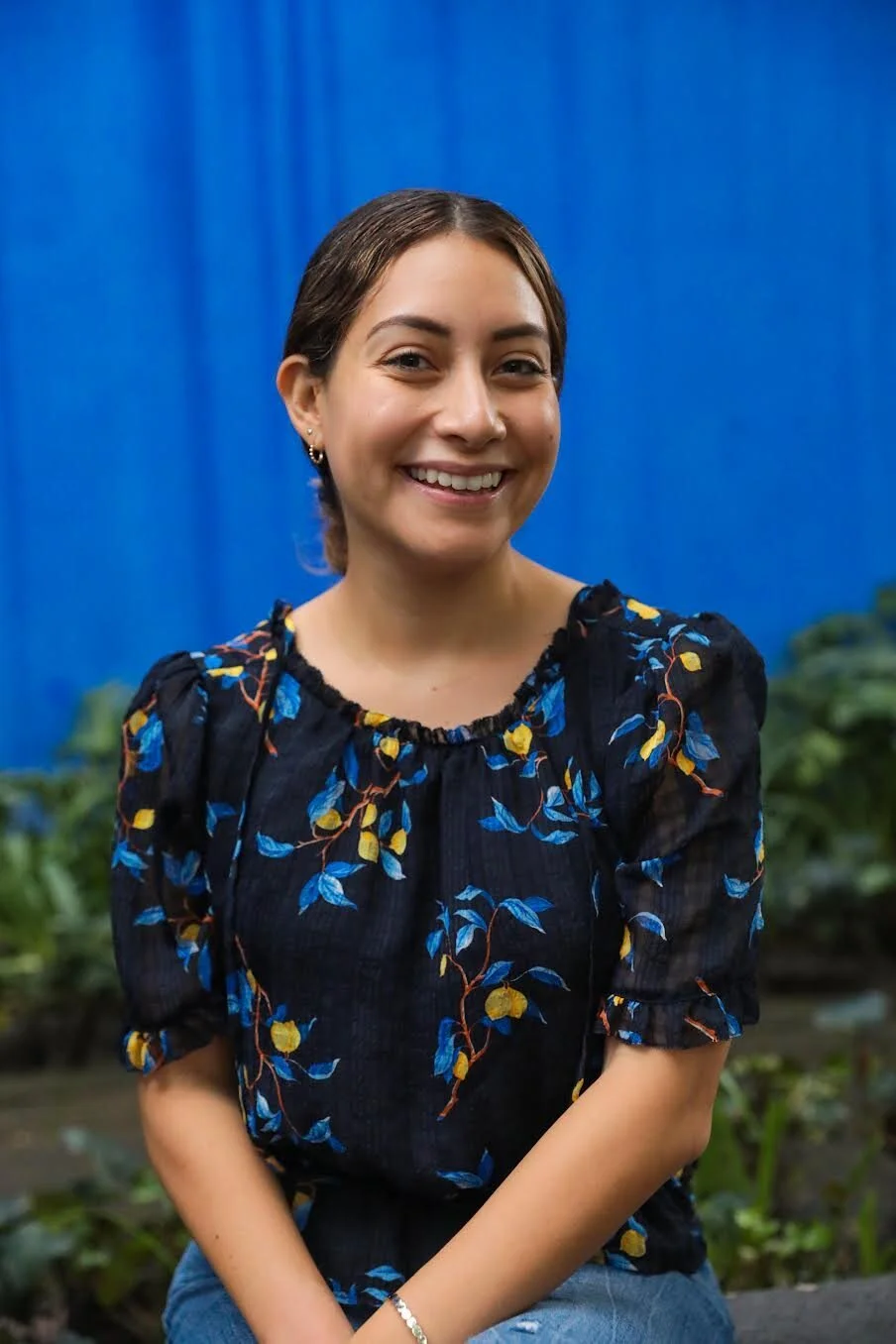Kayla Nedza, Author of "Things I Could Never Thank You For"
If you’re looking for your next introspective read — you know, the kind that sticks with you long after the last page, the kind that makes you feel seen and less alone — then you’ll want to check out Things I Could Never Thank You For.
Kayla Nedza’s debut novel takes a personal look at the Colombian-born, New Jersey-raised author’s experience with transforming grief into healing and growth following her mother’s passing. It’s raw and emotional and exactly the type of storytelling Kayla excels in. And the Latinx community is better because of it.
“A big reason why I wrote the book, produce my podcast [Wellness Glow Up Podcast], and show up on social media as a member of the Latinx community is to remind people of the unique ability they have to share their own stories with the world,” she tells me.
Keep scrolling for my full interview with this mujer de magia.
Grace Gavilanes: Congrats on the release of Things I Could Never Thank You For! What was your experience writing it? I imagine it was an emotional one.
Kayla Nedza: The best way to describe the experience of writing the book is by recognizing how related it is to surfing. Sometimes you'll ride the wave without a hitch and it's smooth sailing as you ride out to approach the shore. I had many chapters like that where they were easy to write. Sometimes you'll ride the wave and you crash or go under while you try to swim to get above water to get some air. I had a few chapters like that where they were difficult to write because I hadn't done the healing to be able to write them from an objective point of view sans emotions. There were 6-7 chapters that I felt blocked in writing because I was still super emotional about the topics. I crashed many times in writing those chapters, but I got back into therapy to work through the blocks I was having to be able to get them to fit the story and remain objective in the telling of them. To tell a good story, I needed to ensure that my emotions weren't getting the best of me so I could communicate the lessons clearly to the audience.
GG: Why was it important for you to share your work with the Latinx community?
KN: A big reason why I wrote the book, produce my podcast [Wellness Glow Up Podcast], and show up on social media as a member of the Latinx community is to remind people of the unique ability they have to share their own stories with the world. As a Latina, there have been many times where I felt the pressure to be silent or to quiet down my entire sense of self for a fear of being seen as too much. If I can show up fully in my work as I explore what it means to be a Latina living with mental health, who struggles with her own identity and place in this world, and loves 2000's R&B, then other people in the Latinx community can openly do the same. No one should have to hide the entirety of who they are.
GG: What has been the response to your work? How has it informed your own growth and healing?
KN: The response to my work has been nothing short of supportive and loving. What I love about getting feedback and talking to people about my work is the way that it reflects back to me how well I'm doing within my own growth and healing. "Doing the work" can be difficult sometimes when it's not tangible and there aren't many modalities to measure how well the work you're doing is working. The response to my work is a reminder to myself that the deep, inner work I'm doing to show up authentically and fully is moving in the right direction.
GG: Grief is so layered and complicated. What have you learned and what would you tell someone who’s just starting out in their own healing process?
KN: I've learned that grief is incredibly inconsistent. This is difficult when we experience it because we as humans love routine, or some sort of rhythm to where we don't have to go into fight or flight. What has helped me is creating stability within the ways that I handle grief, so if it pops up unexpectedly I know what I need to do to deal with it. For example, I have a self-care box at home that has written cards from loved ones with words of affirmation, one of my favorite blankets, and pictures of my favorite memories to move through the grief. If I'm on the go, I have a playlist of my favorite songs, emails from loved ones or people who speak kindly about my writing, and have bookmarked some of my favorite YouTube videos that make me smile. You can't control grief, but you can work to make it easier on yourself when it does pop up.
GG: What does being Latina mean to you?
KN: Being Latina is an ever-evolving relationship I have between my deep appreciation of my cultural background and the role that I play in creating safe spaces and communities for Latinas to explore the same. It's a responsibility I carry to both honor my culture and express my authentic truth inside of my cultural heritage itself. It's about recognizing the richness of my family heritage, while also being aware of the challenges that come with it.
GG: Is there someone on social media whose content resonates with you? Anyone, you think our readers should be following too?
KN: Some of my favorites are Vivian Nuñez (@vivnunez) for mental health and storytelling, Josie Rosario (@josierosarionyc) for real talk about mental and spiritually, Nory Pouncil (@norypouncil) on how to trust yourself, and Maya Murillo (@mayainthemoment) if you want to laugh.





